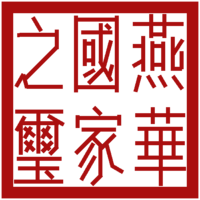Anti-Corruption and Ethics Commission: Difference between revisions
Philimania (talk | contribs) mNo edit summary |
Philimania (talk | contribs) mNo edit summary |
||
| (One intermediate revision by the same user not shown) | |||
| Line 23: | Line 23: | ||
}} | }} | ||
The '''Anti-Corruption and Ethics Commission''' ({{wp|Cantonese|Yinese}}: 廉政道德委員會; [[Jinping]]: Lim4 zing3 dou6 dak1 wai2 jyun4 wui2), commonly abbreviated as the '''ACEC''' is the statutory independent {{wp|anti-corruption}} body of [[Yingok]] with the primary objective of combating corruption in both the public and private sectors. Established in 2001 with the [[Anti-Corruption and Ethics Act]] under the presidency of [[Fung Likwai]], the ACEC is headed by the Commissioner, currently [[Ze Daanming]], who reports directly to the [[Chief Justice of Yingok]], [[Wu Suk-fan]]. The ACEC has played a crucial role since its founding in addressing corruption in the country, a notable issue that continues to the present day. | The '''Anti-Corruption and Ethics Commission''' ({{wp|Cantonese|Yinese}}: ''廉政道德委員會''; [[Jinping]]: ''Lim4 zing3 dou6 dak1 wai2 jyun4 wui2''), commonly abbreviated as the '''ACEC''' is the statutory independent {{wp|anti-corruption}} body of [[Yingok]] with the primary objective of combating corruption in both the public and private sectors. Established in 2001 with the [[Anti-Corruption and Ethics Act]] under the presidency of [[Fung Likwai]], the ACEC is headed by the Commissioner, currently [[Ze Daanming]], who reports directly to the [[Chief Justice of Yingok]], [[Wu Suk-fan]]. The ACEC has played a crucial role since its founding in addressing corruption in the country, a notable issue that continues to the present day. | ||
The establishment of the ACEC came as a response to to growing concerns over corruption and general political incompetence in Yingok that had played a large part in Yinese politics since the founding of the First Republic. As stipulated in the Anti-Corruption and Ethics Act, the ACEC operates independently while the Commissioner of the organisation is nominated by the Chief Justice and appointed by the [[National Diet of Yingok|National Diet]]. | |||
The ACEC is responsible for carrying out {{Wp|investigation}}s, preventing {{wp|crime}}s, and educating the public. It looks into reports of corruption-related crimes, carries out operations to reveal corrupt behaviors, and holds the power to detain, investigate, and confiscate assets. Moreover, the ACEC focuses on preventing corruption by examining and enhancing systems and procedures in government departments, public bodies, and private organisations. Additionally, they provide guidance and support in implementing successful anti-corruption strategies. The ACEC also conducts {{wp|public education}} and awareness initiatives to promote ethical standards in society and urge the public to report corruption. | |||
== History == | |||
== Impact == | |||
== Organisation == | |||
== Controversies == | |||
== In popular culture == | |||
== References == | == References == | ||
{{reflist}} | {{reflist}} | ||
{{yingoktopics}} | {{yingoktopics}} | ||
[[Category:Yingok]] | [[Category:Yingok]] | ||
Latest revision as of 11:19, 5 June 2024
This article is incomplete because it is pending further input from participants, or it is a work-in-progress by one author. Please comment on this article's talk page to share your input, comments and questions. Note: To contribute to this article, you may need to seek help from the author(s) of this page. |
| Anti-Corruption and Ethics Commission 廉政道德委員會 (Lim4 zing3 dou6 dak1 wai2 jyun4 wui2) | |
|---|---|
Logo of the ACEC | |
| Abbreviation | ACEC |
| Motto | 打擊腐敗,弘揚廉潔。 "Fight corruption, promote integrity." |
| Agency overview | |
| Formed | 5 December 2001 |
| Employees | 2,138 (2013)[1] |
| Annual budget | $4.3 billion (2017)[2] |
| Jurisdictional structure | |
| Legal jurisdiction | Yingok |
| Constituting instruments | |
| Specialist jurisdiction | |
| Operational structure | |
| Headquarters | ACEC Building, 202 Tindei Road, Buksi, Dongsing |
| Elected officer responsible | |
| Agency executive |
|
| Website | |
| www.acec.gov | |
The Anti-Corruption and Ethics Commission (Yinese: 廉政道德委員會; Jinping: Lim4 zing3 dou6 dak1 wai2 jyun4 wui2), commonly abbreviated as the ACEC is the statutory independent anti-corruption body of Yingok with the primary objective of combating corruption in both the public and private sectors. Established in 2001 with the Anti-Corruption and Ethics Act under the presidency of Fung Likwai, the ACEC is headed by the Commissioner, currently Ze Daanming, who reports directly to the Chief Justice of Yingok, Wu Suk-fan. The ACEC has played a crucial role since its founding in addressing corruption in the country, a notable issue that continues to the present day.
The establishment of the ACEC came as a response to to growing concerns over corruption and general political incompetence in Yingok that had played a large part in Yinese politics since the founding of the First Republic. As stipulated in the Anti-Corruption and Ethics Act, the ACEC operates independently while the Commissioner of the organisation is nominated by the Chief Justice and appointed by the National Diet.
The ACEC is responsible for carrying out investigations, preventing crimes, and educating the public. It looks into reports of corruption-related crimes, carries out operations to reveal corrupt behaviors, and holds the power to detain, investigate, and confiscate assets. Moreover, the ACEC focuses on preventing corruption by examining and enhancing systems and procedures in government departments, public bodies, and private organisations. Additionally, they provide guidance and support in implementing successful anti-corruption strategies. The ACEC also conducts public education and awareness initiatives to promote ethical standards in society and urge the public to report corruption.
History
Impact
Organisation
Controversies
In popular culture
References
- ↑ "Employment in the ACEC". Anti-Corruption and Ethics Commission. Retrieved 23 July 2014.
- ↑ "2016-2017 Budget Report" (PDF). stats.gov.yn. 3 January 2018.
